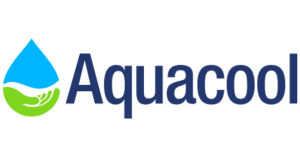Aquacool Highlights Importance of Accessible Drinking Water in UK Workplaces and Public Spaces
MANCHESTER, UNITED KINGDOM, August 22, 2025 /EINPresswire.com/ -- Aquacool, a UK-based supplier of hydration solutions for offices, schools, and public facilities, is underscoring the growing importance of easy access to clean drinking water in workplaces and community spaces across the country. With increasing emphasis on sustainability, health, and employee wellbeing, businesses and institutions are taking a closer look at their water provision facilities.
A 2024 study by the British Nutrition Foundation noted that maintaining adequate hydration can support concentration, reduce fatigue, and improve productivity in the workplace. As awareness grows, many UK organisations are investing in modern hydration points, including easily accessible Aquacool drinking fountain and mains-fed coolers to ensure staff and visitors stay refreshed throughout the day.
Unlike bottled water dispensers, mains-fed systems tap directly into the building’s water supply, reducing reliance on single-use plastics and minimising transport emissions. This aligns with widespread UK government and corporate sustainability commitments. For example, WRAP (Waste and Resources Action Programme) reports that reducing single-use plastic bottles is one of the most impactful ways for facilities to contribute to national waste reduction goals.
Aquacool offers a wide selection of hydration solutions — from compact units for small offices to robust public-use Aquacool water cooler models and vandal-resistant drinking fountains ideal for schools, transport hubs, and leisure centres. By installing these systems, facilities not only meet the needs of employees and visitors but also contribute to broader environmental objectives.
Workplace amenities, including hydration facilities, are increasingly seen as essential rather than optional. According to the Chartered Institute of Personnel and Development (CIPD), access to high-quality water provision is part of creating healthy working environments, which can support staff retention and enhance organisational reputation.
Community spaces and educational institutions are also recognising the benefits. Schools, for example, are placing greater emphasis on readily available drinking water for pupils to promote focus and wellbeing during the school day. In public areas, easy access to water reduces demand for bottled beverages, helping to cut litter and environmental impact.
While many businesses already provide water dispensers, upgrading to modern, mains-fed systems offers long-term cost efficiencies, improved taste through advanced filtration, and a reduced carbon footprint. These advantages are prompting a steady shift towards sustainable hydration infrastructure across the UK.
By focusing on workplace health, sustainability, and public wellbeing, accessible drinking water facilities are becoming a key feature of the UK’s built environment. With solutions tailored to a wide range of sectors, organisations can ensure that both environmental and human needs are met.
For more information on workplaces and public spaces hydration solutions, visit https://www.aquacool.co.uk/.
A 2024 study by the British Nutrition Foundation noted that maintaining adequate hydration can support concentration, reduce fatigue, and improve productivity in the workplace. As awareness grows, many UK organisations are investing in modern hydration points, including easily accessible Aquacool drinking fountain and mains-fed coolers to ensure staff and visitors stay refreshed throughout the day.
Unlike bottled water dispensers, mains-fed systems tap directly into the building’s water supply, reducing reliance on single-use plastics and minimising transport emissions. This aligns with widespread UK government and corporate sustainability commitments. For example, WRAP (Waste and Resources Action Programme) reports that reducing single-use plastic bottles is one of the most impactful ways for facilities to contribute to national waste reduction goals.
Aquacool offers a wide selection of hydration solutions — from compact units for small offices to robust public-use Aquacool water cooler models and vandal-resistant drinking fountains ideal for schools, transport hubs, and leisure centres. By installing these systems, facilities not only meet the needs of employees and visitors but also contribute to broader environmental objectives.
Workplace amenities, including hydration facilities, are increasingly seen as essential rather than optional. According to the Chartered Institute of Personnel and Development (CIPD), access to high-quality water provision is part of creating healthy working environments, which can support staff retention and enhance organisational reputation.
Community spaces and educational institutions are also recognising the benefits. Schools, for example, are placing greater emphasis on readily available drinking water for pupils to promote focus and wellbeing during the school day. In public areas, easy access to water reduces demand for bottled beverages, helping to cut litter and environmental impact.
While many businesses already provide water dispensers, upgrading to modern, mains-fed systems offers long-term cost efficiencies, improved taste through advanced filtration, and a reduced carbon footprint. These advantages are prompting a steady shift towards sustainable hydration infrastructure across the UK.
By focusing on workplace health, sustainability, and public wellbeing, accessible drinking water facilities are becoming a key feature of the UK’s built environment. With solutions tailored to a wide range of sectors, organisations can ensure that both environmental and human needs are met.
For more information on workplaces and public spaces hydration solutions, visit https://www.aquacool.co.uk/.
Stephen Ramotowski
Aquacool
email us here
Visit us on social media:
LinkedIn
Instagram
Facebook
X
Legal Disclaimer:
EIN Presswire provides this news content "as is" without warranty of any kind. We do not accept any responsibility or liability for the accuracy, content, images, videos, licenses, completeness, legality, or reliability of the information contained in this article. If you have any complaints or copyright issues related to this article, kindly contact the author above.
